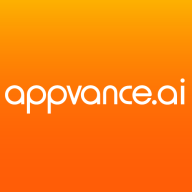

OpenText Functional Testing and Appvance AIQ Platform compete in the software testing domain. Appvance AIQ Platform seems to have the upper hand due to its advanced AI-driven features and greater test automation capabilities.
Features: OpenText provides robust test creation and management, emphasizing integration capabilities. It offers a reliable testing framework and strong scripting support, focusing on seamless integration with enterprise systems. Appvance AIQ provides comprehensive AI-driven testing, coverage expansion, and efficiency, focusing on AI automation, scriptless test creation, and real-time analytics.
Ease of Deployment and Customer Service: Appvance AIQ offers streamlined deployment with strong support channels, attracting businesses seeking quick implementation. It offers user-friendly interfaces and on-demand assistance for reliability. OpenText provides a traditional deployment model with dependable customer service, offering well-established support frameworks and guidance throughout the process.
Pricing and ROI: OpenText offers a lower initial setup cost, appealing to budget-conscious buyers, and provides competitive licensing options. Appvance AIQ requires a higher initial investment but yields substantial return through reduced testing time and increased coverage, leading to long-term ROI benefits despite the initial expenditure.
| Product | Market Share (%) |
|---|---|
| OpenText Functional Testing | 8.5% |
| Appvance AIQ Platform | 0.6% |
| Other | 90.9% |

| Company Size | Count |
|---|---|
| Small Business | 20 |
| Midsize Enterprise | 12 |
| Large Enterprise | 71 |
Appvance.ai is the leader in AI-driven testing, which is revolutionizing how software testing is performed. The company’s premier product is Appvance IQ™, the world’s first AI-driven, unified test automation system. AIQ empowers enterprises to improve the quality, performance and security of their apps, while transforming the efficiency and output of their testing teams.
Appvance IQ was launched in late 2017, helping Appvance.ai to become among the fastest growing test automation companies in the world, and the leader in the new category of AI driven testing.
OpenText Functional Testing provides automated testing with compatibility across technologies, browsers, and platforms. It targets APIs, GUIs, and applications like SAP and Oracle for efficient test automation, emphasizing usability and integration with tools such as Jenkins and ALM.
OpenText Functional Testing offers wide-ranging automation capabilities for functional and regression testing, API testing, and automation across web, desktop, and mainframe applications. It supports script recording and object identification, appealing to less technical users. Despite its advantages, it grapples with memory issues, stability concerns, and a challenging scripting environment. Its VBScript reliance limits flexibility, generating demand for enhanced language support and speed improvement. Users appreciate its role in continuous integration and deployment processes, managing test data efficiently, and reducing manual testing efforts.
What are the key features of OpenText Functional Testing?In industries like finance and healthcare, OpenText Functional Testing is leveraged for end-to-end automation, ensuring streamlined processes and accuracy in testing. Many companies utilize it for efficient test data management and integrating testing within continuous integration/deployment operations.
We monitor all Functional Testing Tools reviews to prevent fraudulent reviews and keep review quality high. We do not post reviews by company employees or direct competitors. We validate each review for authenticity via cross-reference with LinkedIn, and personal follow-up with the reviewer when necessary.